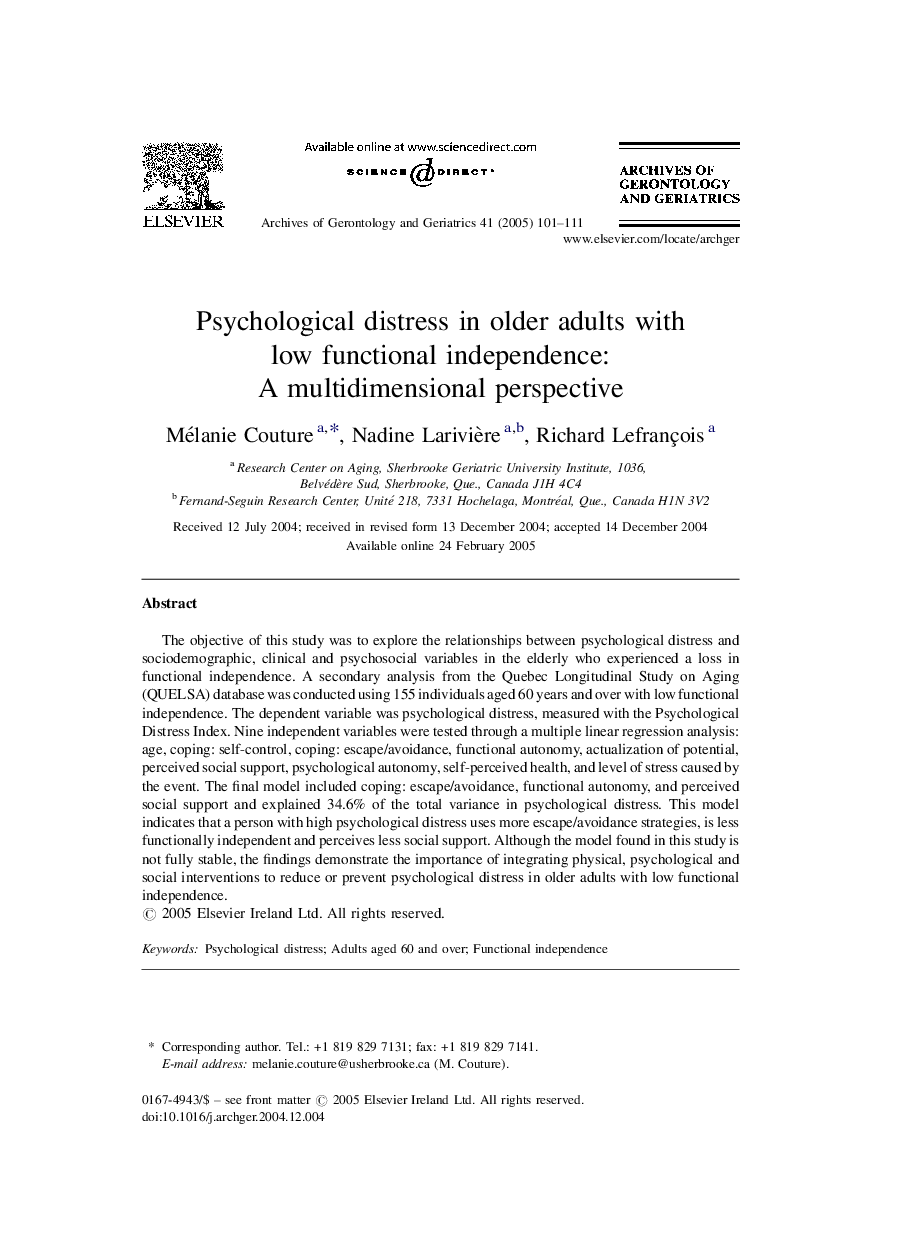| Article ID | Journal | Published Year | Pages | File Type |
|---|---|---|---|---|
| 9878914 | Archives of Gerontology and Geriatrics | 2005 | 11 Pages |
Abstract
The objective of this study was to explore the relationships between psychological distress and sociodemographic, clinical and psychosocial variables in the elderly who experienced a loss in functional independence. A secondary analysis from the Quebec Longitudinal Study on Aging (QUELSA) database was conducted using 155 individuals aged 60 years and over with low functional independence. The dependent variable was psychological distress, measured with the Psychological Distress Index. Nine independent variables were tested through a multiple linear regression analysis: age, coping: self-control, coping: escape/avoidance, functional autonomy, actualization of potential, perceived social support, psychological autonomy, self-perceived health, and level of stress caused by the event. The final model included coping: escape/avoidance, functional autonomy, and perceived social support and explained 34.6% of the total variance in psychological distress. This model indicates that a person with high psychological distress uses more escape/avoidance strategies, is less functionally independent and perceives less social support. Although the model found in this study is not fully stable, the findings demonstrate the importance of integrating physical, psychological and social interventions to reduce or prevent psychological distress in older adults with low functional independence.
Related Topics
Life Sciences
Biochemistry, Genetics and Molecular Biology
Ageing
Authors
Mélanie Couture, Nadine Larivière, Richard Lefrançois,
